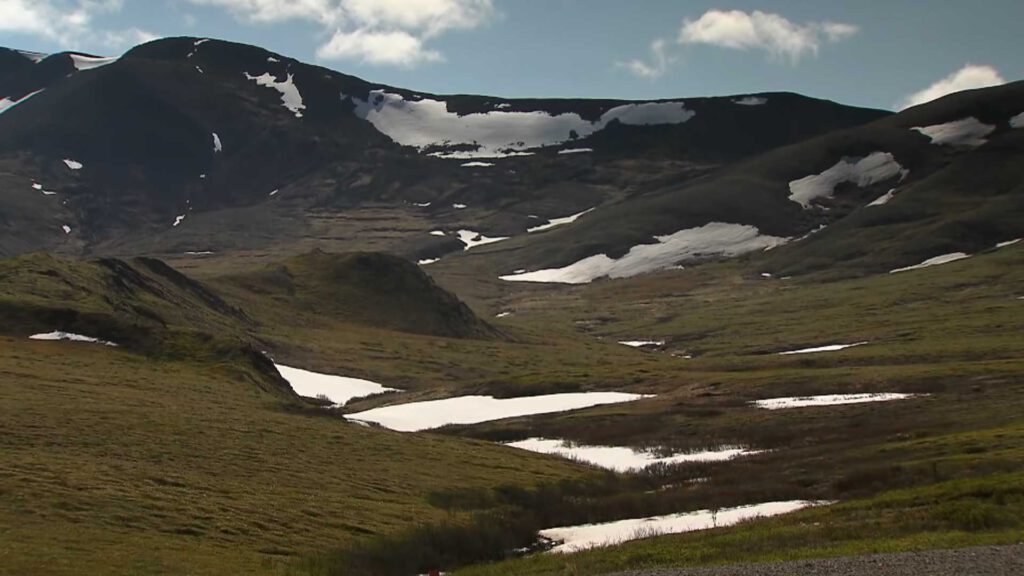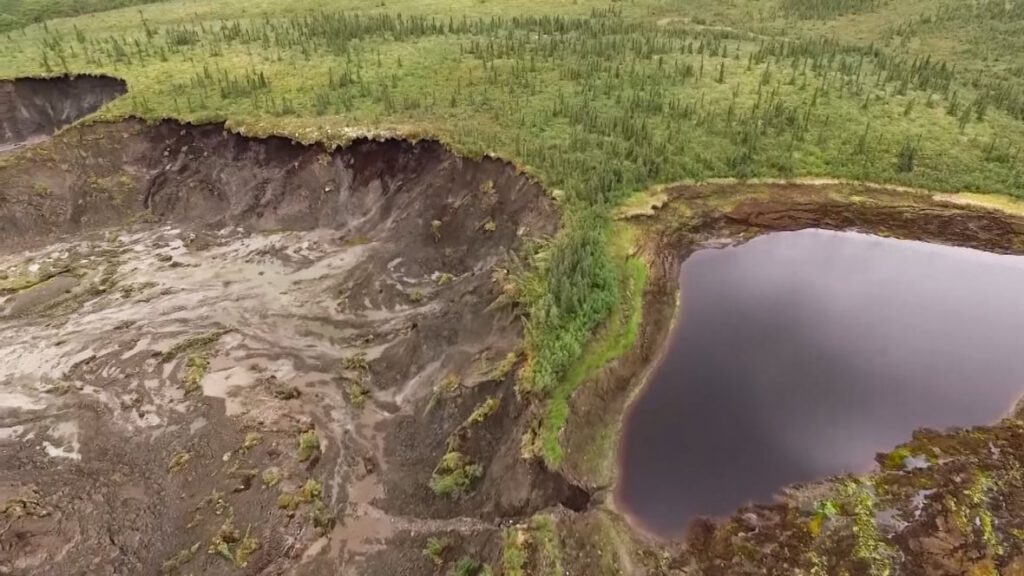Record temperatures in Canada melt Permafrost with potentially Catastrophic effects
This heat has rapidly melted any snow remaining on the ground and has caused the thawing of the top layer of the permanently frozen soil. The water from the thaw is unable to percolate down through the frozen layers below. That causes even more thawing.
CBC News The National: Northern Canada is seeing record temperatures because of a heat dome hovering over the region and experts are worried the extreme heat will lead to a rapid permafrost thaw and potentially catastrophic effects.
Recent heatwaves have exceeded worst-case climate scenarios.
Dailykos: The heatwave in the Pacific Northwest that has caused hundreds of deaths and igniting wildfires has entered the southern extremities of the Yukon and the Northwest territories. This heat has rapidly melted any snow remaining on the ground and has caused the thawing of the top layer of the permanently frozen soil.
The water from the thaw is unable to percolate down through the frozen layers below. That causes even more thawing. The fear is that the thawed soil will detach from the frozen layer and slump into nearby rivers. This process is known as solifluction.

CBC: The N.W.T.’s season started very wet, with really fast snowmelt, Quinton said, with most of the water ending up in the landscape. When that happens, there is more ground thaw — and even more permafrost thaw.
Fabrice Calmels, research chair of permafrost and geoscience at Yukon University, said these temperatures could speed up the thaw of the first active layer of soil. That layer could then detach itself from a thicker, permanent layer underneath and slide into nearby rivers.
“You may have some small landslides on slopes,” he said. “When permafrost melts, it changes hydrology, it changes vegetation. It’s a very complicated process.”
With these kinds of temperatures comes an elevated risk of wildfires, Calmels continued.
Storm-producing fire clouds threw out hundreds of thousands of lightning strikes over wildfire-stricken British Columbia and northwestern Alberta provinces in Canada Wednesday and Thursday, bewildering meteorologists. https://t.co/QnyZ9yPq7G
— SFGATE (@SFGate) July 1, 2021

CBC: Quinton said he doesn’t know yet what long term effects the heat wave will have on the landscape and water, but it’s something they’re actively studying. More of these heat waves should be expected in the future, he continued, because it is “on par” with what we know about how climate change brings on more extreme weather events.
In order to respond to these challenges, Quinton said it’s possible some might have to change the way they interact with the land. “There are new hazards that we have to be aware of,” He said. “Our past experiences on the land don’t necessarily apply when things are changing so fast.”
Calmels said there are some changes that can be made at a micro-level, like where and how roads and structures are built, but nothing that can be applied at a territorial level. “Even if you were going to grow vegetation to regenerate permafrost … there’s no guarantee that you would get results,” he said.
Canada Battles More Than 180 Wildfires With Hundreds Dead In Heat Wave https://t.co/3uaOMLcIRH
— Monica Samayoa (@m0nica10) July 5, 2021
Canada witnesses '12,000 lightning strikes in a day' as wildfires continue to spread https://t.co/NzpN5z12TV
— Republic (@republic) July 5, 2021
- Summer swelter trend: West gets hotter days, East hot nights (2021)
- The North American heatwave shows we need to know how climate change will change our weather (2021)
The #ClimateEmergency continues… "More than a billion seashore animals may have cooked to death in B.C. heat wave, -UBC researcher – Shoreline temps above 50C & low tides led to mass deaths of animals like mussels, clams, sea stars" #ExtremeHeathttps://t.co/v2RSm2Vrzp pic.twitter.com/MjtofcIrhn
— Blair Palese ? (@blairpalese) July 6, 2021
